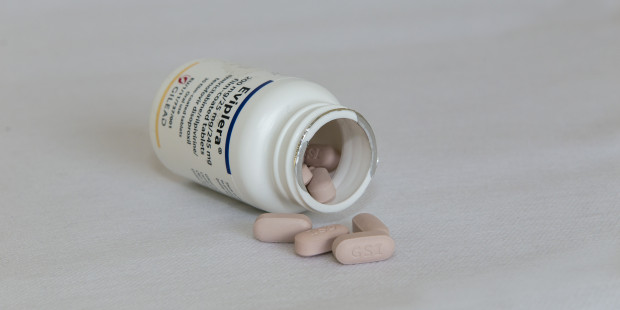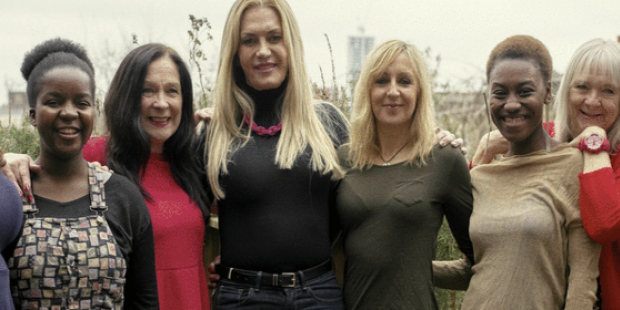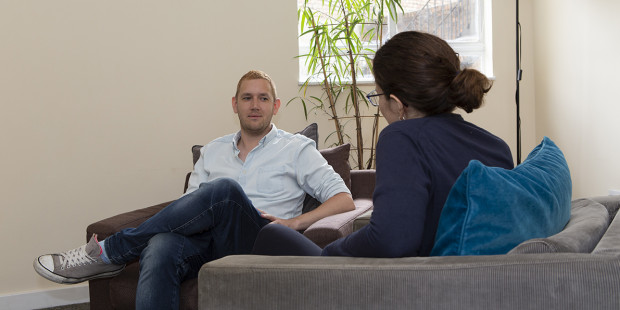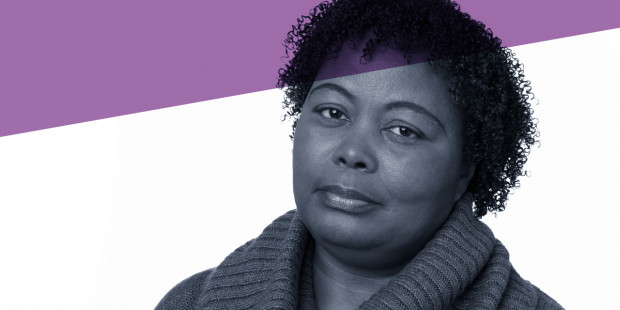Menopause and HIV
Some studies suggest that women living with HIV might experience symptoms of menopause earlier and more severely than women who don't have HIV.
If you have ovaries (the reproductive organ that produces eggs) then you will experience the menopause. This includes cisgender women, trans men and non-binary people.
According to the PRIME study on menopause in women living with HIV in England, symptoms of menopause among the women in this group were sometimes confused with symptoms of HIV. Sexual dysfunction was also more common, but the good news is that women living with HIV are a lot more likely to seek medical help for those problems.
The full PRIME report has more interesting findings.
Will I need medical treatment for the menopause?
Some people prefer not to take any treatment and others find it a useful way to reduce symptoms they find unpleasant.
Hormone replacement therapy (HRT) can be prescribed to reduce some symptoms of menopause, prevent osteoporosis or to treat early onset of menopause. HRT involves taking oestrogen in the form of tablets, an implant, a gel or spray to replace the decline in your own levels. Combined HRT/oestrogen and progestogen can be used if you still have a womb or oestrogen-only HRT if you don’t. Some women may benefit from replacing testosterone as well.
HRT is generally not used as a long-term treatment because some studies have suggested it may increase the risk of developing other conditions such as breast cancer. However, other studies have disputed this. It’s best to talk with your doctor to discuss the benefits and risks of taking HRT before prescribing it to you.
Healthy bones after menopause
The British HIV Association (BHIVA) recommends that HIV doctors regularly check the bone health of all women with HIV who have gone through the menopause. This is because both HIV and the menopause raise the risk of bone issues.
By regularly getting some weight-bearing exercise, stopping smoking, drinking less alcohol, including calcium in your diet and getting enough vitamin D, you can help take care of your bone health.
NAM has a factsheet where you can read more about bone problems and HIV.
Can HRT be taken with HIV treatment?
Yes, HRT can be taken with HIV treatment. Ask your doctor if there are any interactions between HRT and the anti-HIV drugs you’re on.
HIV clinics don’t provide HRT so you’ll need to have it prescribed by your GP or another doctor.
Will my HIV treatment still be as effective?
Treatment works just as well if you have gone through the menopause or not.
What is the menopause?
Menopause is when your monthly periods (known as the menstrual cycle) stop and you can no longer get pregnant naturally. This usually happens between the ages of 45 and 55 after months or years of periods becoming less frequent.
There can be changes to your body and your menstrual cycle in the years leading up to your menopause. This is called the perimenopause.
The menopause happens because the levels of the hormone oestrogen being released from the ovaries drops over time. Oestrogen causes:
- your periods to start in adolescence
- your ovaries to release an egg every month
- your womb lining to thicken up in order to receive a fertilised egg.
At the same time, the number of eggs in your ovaries also reduce, but you can still become pregnant up until you have your last period.
If you have questions about symptoms of the menopause, or possible interactions between treatments, talk to your healthcare team.
You could also call THT Direct on 0808 802 1221, who can offer signposting advice.







